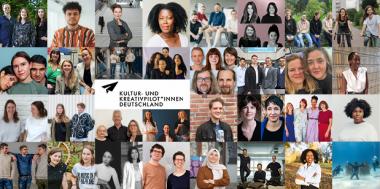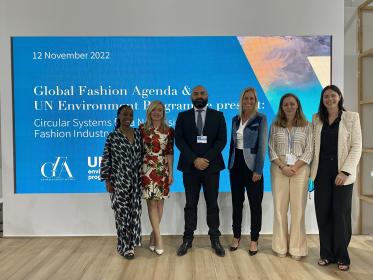CELC becomes Alliance for European Flax-Linen & Hemp
- The European Confederation for Flax and Hemp (CELC) has unveiled its new visual identity and name: Alliance for European Flax-Linen & Hemp.
- The European Flax-Linen and Hemp industries have announced they are organizing their development around a strengthened team with a clear mission: to expand the entire industry whilst making European Flax-Linen and Hemp the preferred sustainable premium fibers worldwide.
- The Alliance for European Flax-Linen & Hemp will launch its new identity in the first semester of 2023 for all target groups including Natural Fiber Composite Applications.
CELC has announced its new name and visual identity. The organization, which is the only European agro-industrial organization that serves as a global reference, will now be known as the Alliance for European Flax-Linen & Hemp.
The new name - Alliance for European Flax-Linen & Hemp – reflects a newly restructured European industry which brings together the entire value chain around a common goal: to make European Flax-Linen and Hemp the preferred sustainable premium fibers worldwide for Fashion, Technical Textiles and Natural Fiber Composite Applications.
The new brand identity is accompanied by a new logo that connects the identity, values and strategic direction of the Alliance for European Flax-Linen & Hemp. In addition to visual changes, the Alliance has announced enhanced values and a clear strategic path to turn European Flax-Linen and Hemp into the preferred sustainable premium fibers worldwide.
The Alliance’s future development pathway will focus on three distinct strategic pillars.
- Enhancing its work in publishing structured, reliable economic data and information on a regular basis, in order to be able to continuously deploy a set of specific decision-making support tools.
- Transforming the Alliance for European Flax-Linen & Hemp into an innovative and sustainable international reference which continuously improves its environmental footprint through two essential elements: traceability and Life Cycle Analysis.
- Guaranteeing quality and better describing the quality of its fibers by using technological innovations to create a reference for describing long fibers. A description of European Flax® fibers through optical imaging will soon complement the organoleptic method.
“Europe is the top global producer of Flax fiber. In an international context of growth and reindustrialization, Flax, which accounts for just 0.4% of global textile fibers, is a globalized fiber with remarkable technical and environmental properties. At the same time, the European textile Hemp industry is organizing itself to boost growth. Today, the European Flax-Linen and Hemp ecosystem thus embodies an innovative and sustainable European textile dynamic that meets the needs of consumers and brands.” Bart Depourcq, President, Alliance for European Flax-Linen & Hemp.
Alliance for European Flax-Linen & Hemp






























